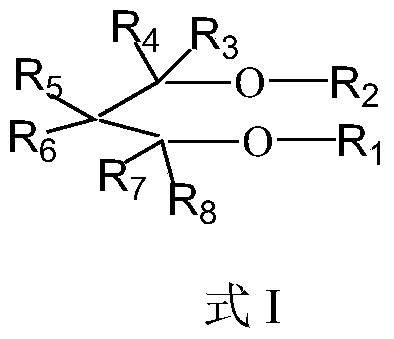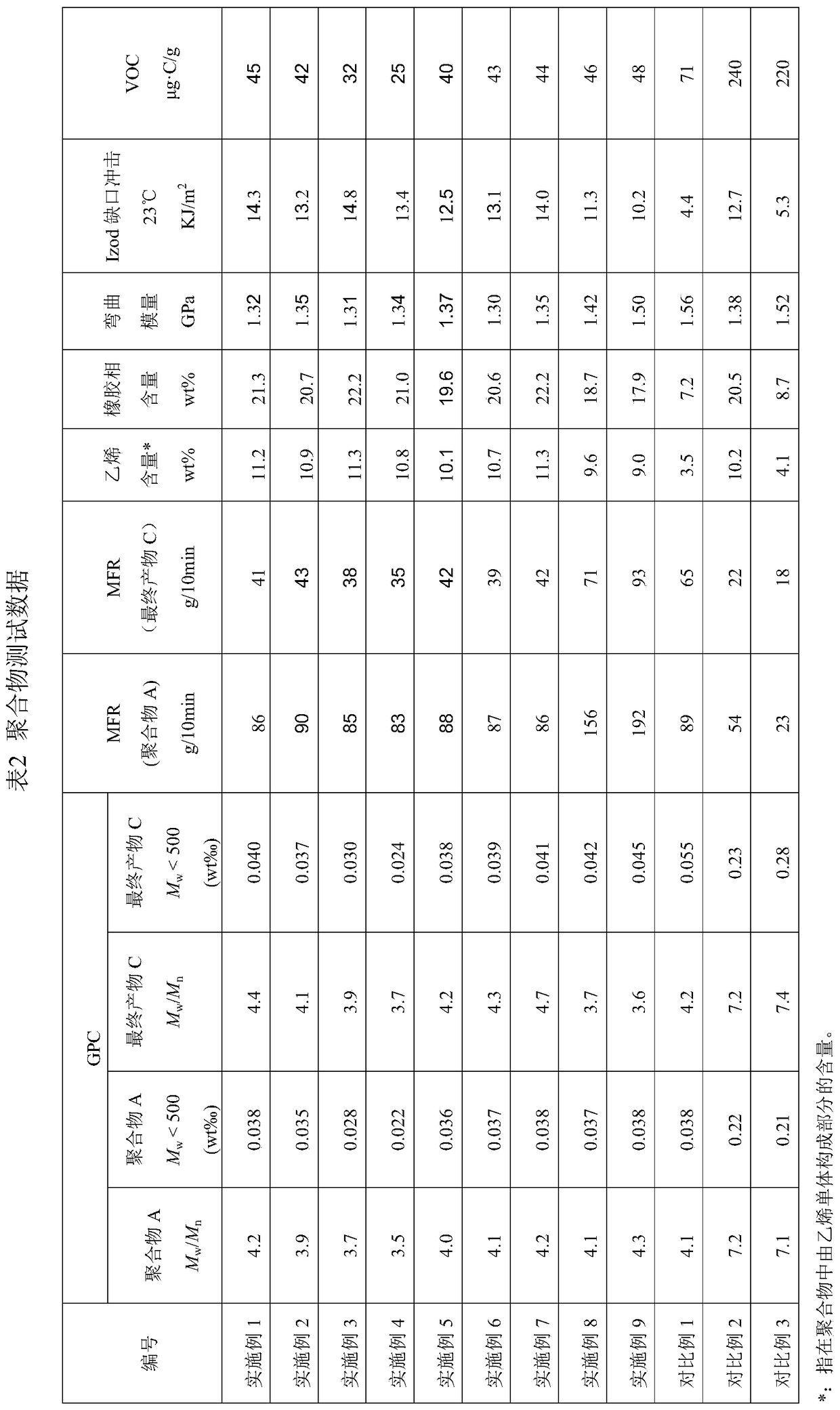A kind of preparation method of impact-resistant polypropylene with low odor and low VOC content
A technology of polypropylene and propylene, which is applied in the field of polypropylene preparation and can solve problems such as high VOC content, relatively large impact on material properties, and re-release
- Summary
- Abstract
- Description
- Claims
- Application Information
AI Technical Summary
Problems solved by technology
Method used
Image
Examples
Embodiment 1
[0057] The propylene polymerization reaction is carried out on a set of 25Kg / hr propylene polymerization device, which mainly includes a pre-complexation reactor, a pre-polymerization reactor, a first loop reactor, a second loop reactor and a third gas phase reactor.
[0058] Polymerization method and steps are as follows:
[0059] (1) Pre-complexation reaction
[0060] Main catalyst (DQC-401 catalyst, provided by Beijing Aoda Branch of Sinopec Catalyst Company, Ti content: 2.5wt%, Mg content: 18.0wt%, di-n-butyl phthalate content: 12.8wt%) flow rate is 0.6g / hr, the cocatalyst (triethylaluminum, TEA) flow rate is 6.33g / hr, the first external electron donor (2,2-diisobutyl-1,3-dimethoxypropane, DIBMP) flow rate is 0.60g / hr, TEA / DIBMP ratio of 50 (mol / mol), pre-complexation reaction at 6°C for 8min.
[0061] (2) Prepolymerization reaction
[0062] The pre-complexed catalyst system is continuously added to the continuous stirred tank pre-polymerization reactor, and the pre-po...
Embodiment 2
[0070] The catalyst used in embodiment 2, pre-complexation and polymerization process conditions are identical with embodiment 1. The difference from Example 1 is that the DIBMP of the first external electron donor is reduced, and the TEA / DIBMP is changed to 40 (mol / mol). The specific process parameters of this embodiment and the performance test results of the obtained polymer are listed in Table 1 and Table 2.
Embodiment 3
[0072] The catalyst used in embodiment 3, pre-complexation and polymerization process conditions are identical with embodiment 1. The difference from Example 1 is that the first external electron donor DIBMP is changed to 2-isopropyl-2-isopentyl-1,3-dimethoxypropane (IPBMP), and TEA / IPBMP is changed to 30 (mol / mol). The specific process parameters of this embodiment and the performance test results of the obtained polymer are listed in Table 1 and Table 2.
PUM
| Property | Measurement | Unit |
|---|---|---|
| melt flow index | aaaaa | aaaaa |
Abstract
Description
Claims
Application Information
 Login to View More
Login to View More - R&D
- Intellectual Property
- Life Sciences
- Materials
- Tech Scout
- Unparalleled Data Quality
- Higher Quality Content
- 60% Fewer Hallucinations
Browse by: Latest US Patents, China's latest patents, Technical Efficacy Thesaurus, Application Domain, Technology Topic, Popular Technical Reports.
© 2025 PatSnap. All rights reserved.Legal|Privacy policy|Modern Slavery Act Transparency Statement|Sitemap|About US| Contact US: help@patsnap.com



